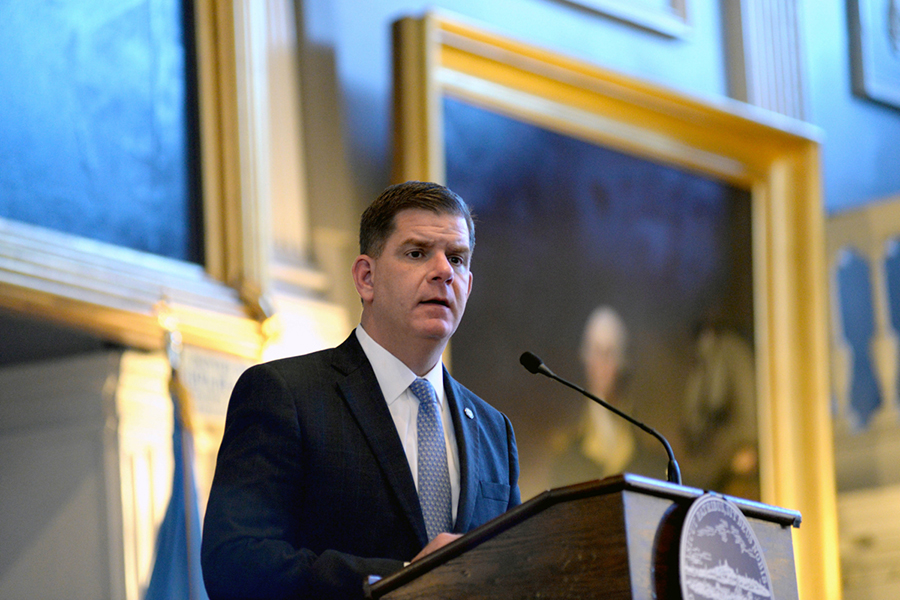Marty Walsh to Explore Lawsuit against Pharmaceutical Companies
The mayor said he is looking into litigation that would hold the pharmacy industry accountable for the opioid crisis in Boston.

Photo via Mayor’s Office/Don Harney
Hospitals, police stations, and T stops have all been part of Boston’s efforts in the ongoing battle against the opioid crisis. But now, Mayor Marty Walsh is set to take the city’s drug fight into another arena: the courtroom.
Walsh said in a statement that he intends to join several cities and more than three dozen states suing pharmacy companies for pumping too many opioids into the market. The suits allege that by selling an abundance of prescription drugs and not providing appropriate information about their risks, the companies helped fuel widespread addiction. Combating the opioid crisis isn’t cheap for cities and states suddenly faced with a spike in demand for emergency services, and similar lawsuits aim to win back those lost municipal dollars.
“I strongly believe that the pharmaceutical industry is the main offender and sustainer of the opioid crisis,” Walsh said in a press release. “Their distribution and marketing of narcotics is unforgivingly reckless, causing irreversible devastation to our families and significant damages to cities nationwide.”
A series of investigative articles have painted a damning picture of the actions taken (or not taken) by pharmaceutical companies prior to the current crisis, and in particular by Purdue Pharma, the company that created OxyContin. Purdue is one of the companies that has been subpoenaed as part of those lawsuits, as were Endo International, Janssen Pharmaceuticals, Teva Pharmaceuticals and Allergan, per NPR.
An estimated 207 people died of opioid-related overdose in Boston in 2016, up from 151 fatalities in 2015. The lawsuit is the latest strategy the mayor’s office has employed to stem the opioid crisis. According to a press release, the city’s Office of Recovery Services is the only municipal-level unit of its kind in the country, and every public safety vehicle in Boston is required to carry Narcan, the overdose antidote.
State and local attorneys took up a similar strategy in 1998 when they sued tobacco companies for selling addictive drugs. Ultimately, the tobacco industry was forced to pay more than $200 billion in settlements, according to City Lab. A similar future could be ahead for Big Pharma.


